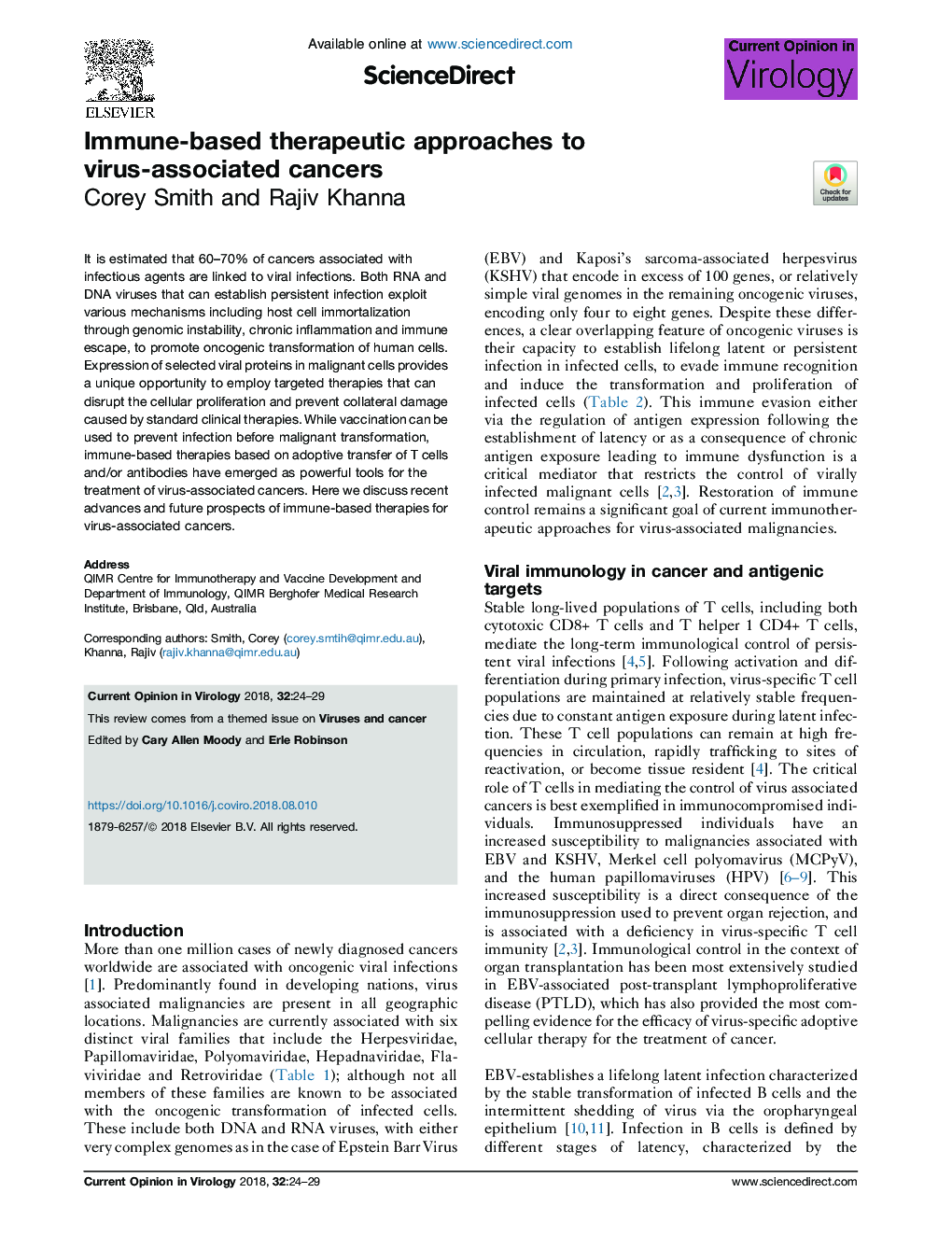| Article ID | Journal | Published Year | Pages | File Type |
|---|---|---|---|---|
| 9954716 | Current Opinion in Virology | 2018 | 6 Pages |
Abstract
It is estimated that 60-70% of cancers associated with infectious agents are linked to viral infections. Both RNA and DNA viruses that can establish persistent infection exploit various mechanisms including host cell immortalization through genomic instability, chronic inflammation and immune escape, to promote oncogenic transformation of human cells. Expression of selected viral proteins in malignant cells provides a unique opportunity to employ targeted therapies that can disrupt the cellular proliferation and prevent collateral damage caused by standard clinical therapies. While vaccination can be used to prevent infection before malignant transformation, immune-based therapies based on adoptive transfer of T cells and/or antibodies have emerged as powerful tools for the treatment of virus-associated cancers. Here we discuss recent advances and future prospects of immune-based therapies for virus-associated cancers.
Related Topics
Life Sciences
Immunology and Microbiology
Virology
Authors
Corey Smith, Rajiv Khanna,
